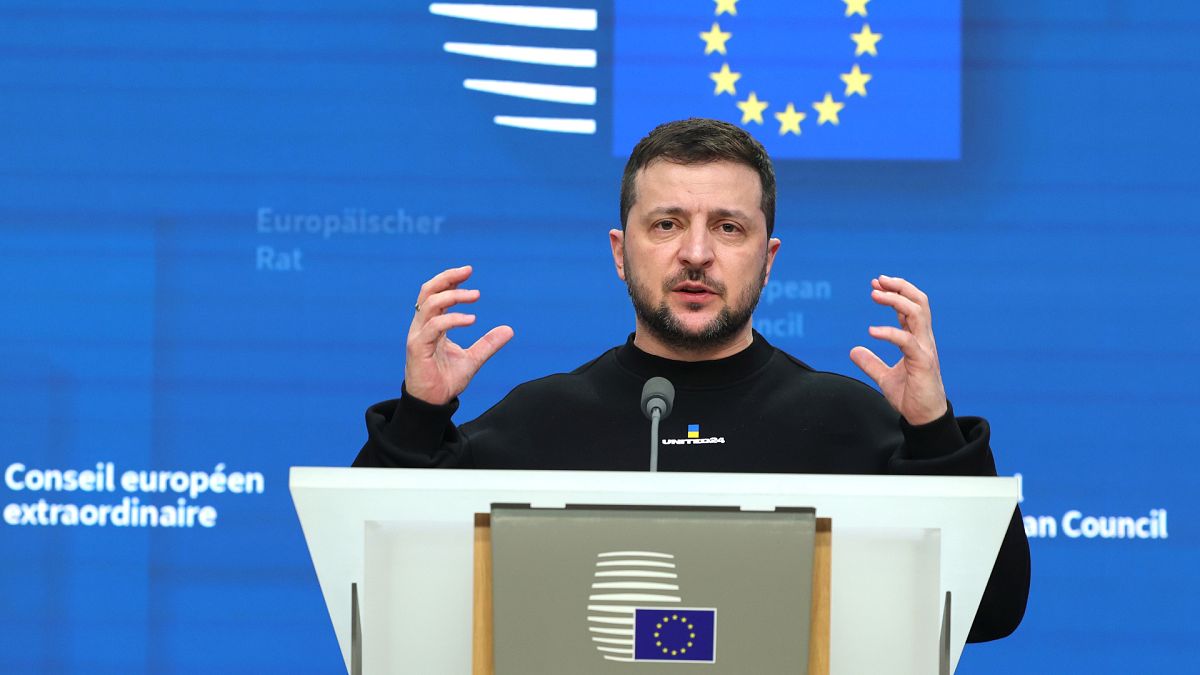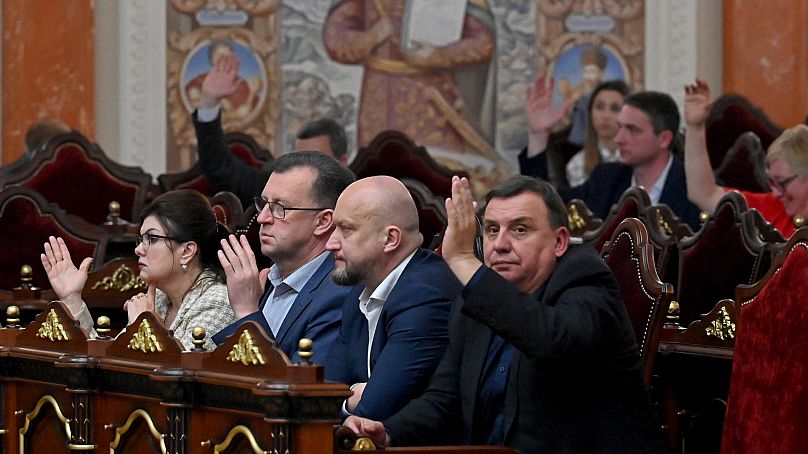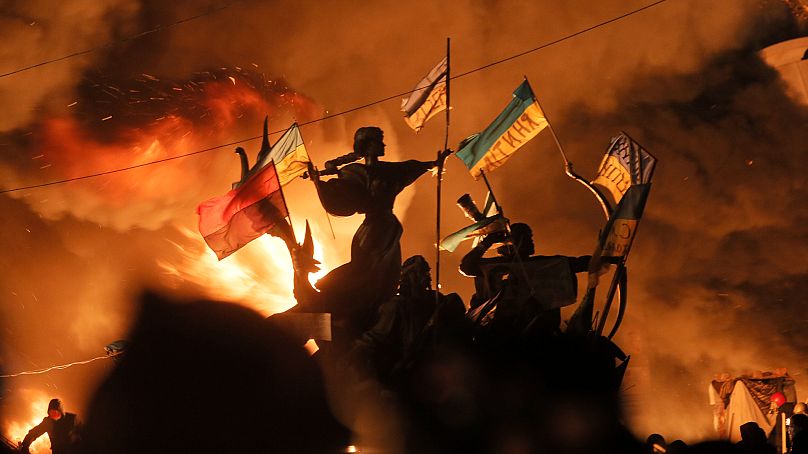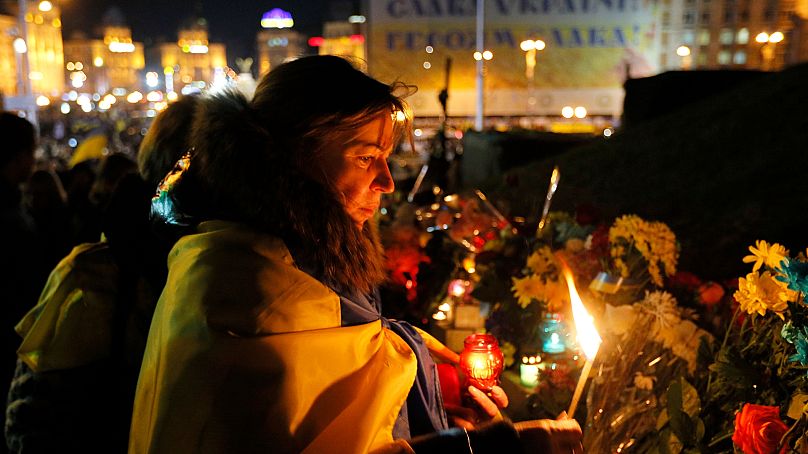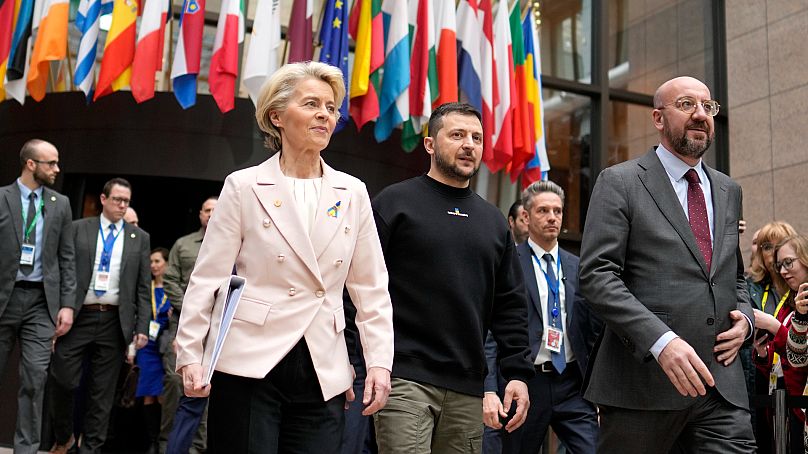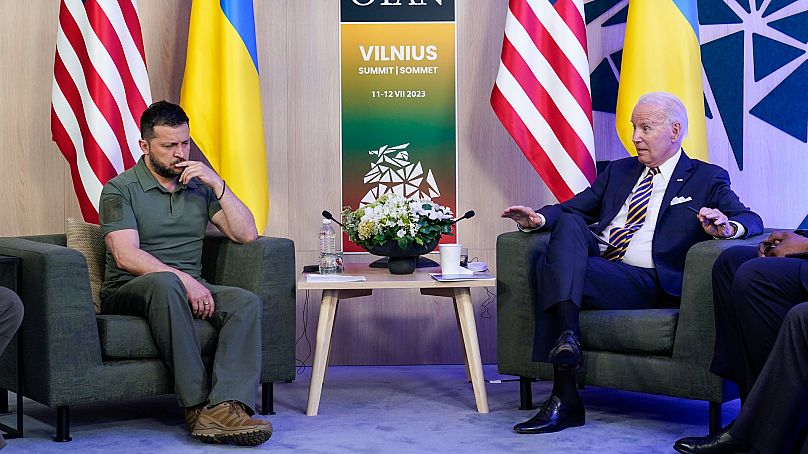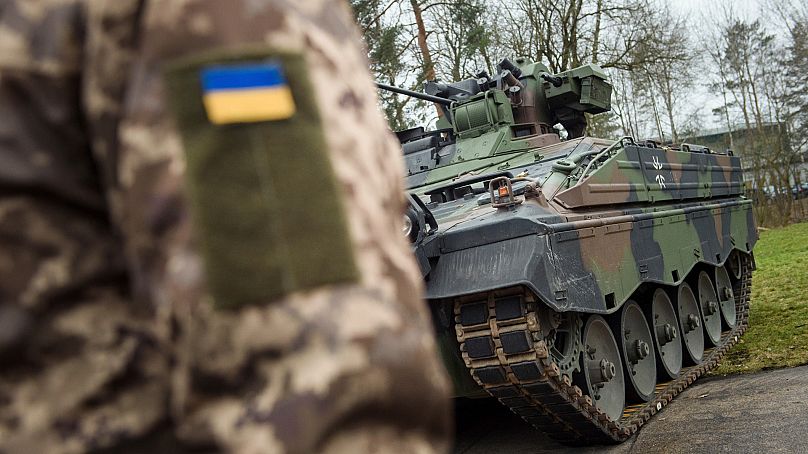Ukraine's recent push to tackle corruption is part of a decade-long battle that only accelerated after Russia’s full-scale invasion and its formal application to join the European Union.
Since the start of Russia’s full-scale invasion of Ukraine, Kyiv has been courting the West both for support in arming its forces on the frontlines and securing the country's future after the war is over.
What Kyiv wants is EU and NATO membership - an achievement that would be hard to obtain even if Ukraine were not at war. Success would include winning a war with no end in sight and reworking core parts of Ukrainian society and governance.
Despite these hurdles, Kyiv has focused a lot of its energy on trying to gain access to both groups as fast as possible. This means tackling one of Brussel's key membership requirements - corruption.
Ukraine one of the most corrupt countries in Europe
Ukraine became a formal candidate for EU membership shortly after Russia launched its full-scale invasion in 2022. It has since met two of the seven requirements to join the bloc, according to the EU. These include changes related to the country's media law and judiciary.
It now has to tackle the EU's five other requirements, including the prevention of money laundering, damping down the influences of oligarchs and dealing with widespread corruption.
Ukraine is currently the second lowest-scoring country in Europe on Transparency International’s Corruption Perception Index, coming in just above Russia.
According to Ian Bond, the director of foreign policy at the Centre for European Reform, “Ukraine has made less progress than many countries in Central and Eastern Europe in tackling the legacy of the way that it exited from communism."
And Kyiv has only “relatively recently [implemented] the wholesale reform of Ukrainian institutions to tackle things like judicial corruption."
In 2013, just one year before Russia illegally annexed Crimea, it scored 25 out of 100 on Transparency International’s Corruption Perception Index.
A score of zero - which no country currently has - would mean that widespread corruption has fully replaced a state’s government.
Corruption in Ukraine can look like a variety of things, such as “judges who can be bought or administrative corruption," Bond described.
“So, if you want to get a license for something, you have to pay a bribe to get it.”
Decades-long battle to fight corruption
But since 2013, Ukraine has moved up Transparency International's corruption ranking. Last year, it received a score of 33 - which is still nine points behind the EU's lowest-ranking member, Hungary.
This is because - according to Oleksandr Kalitenko, the legal advisor for Transparency International Ukraine - years of turmoil have soured public opinion around corruption, giving support to attempts to tackle it.
Between 2013 and 2014, hundreds of thousands of people took to the streets as part of a mass movement against then pro-Russian President Viktor Yanukovich, calling for corrupt officials to be prosecuted and for stolen assets from the national budget to be returned.
"Before the Revolution of Dignity, more Ukrainians would tolerate corruption. But now we see the tectonic changes in a good way. They now have zero tolerance for corruption," Kalitenko said.
He added that the flow of money and aid into Ukraine - both after the illegal annexation of Crimea and the full-scale invasion - also caused more people to worry about where funds were going. Between 2021 and 2022, the percentage of people who thought corruption was not justifiable grew from 40% to 64%.
Kalitenko believes Ukraine can move swiftly to tackle corruption and meet the EU's membership requirements, despite Russia's full-scale invasion and its low score.
"We see a lot of cases [of corruption] being transferred to the court and being discussed also in the media," Kalitenko said. "And it is a very good sign that even during that full-scale invasion, anti-corruption infrastructure is still able to work and prove their effectiveness."
Another push to tackle corruption
After Russia's full-scale invasion, Ukraine has increased its effort to clean up corruption to meet the EU's standards.
It has reinstated its anti-corruption scheme after it originally expired in 2017. And it recently selected new heads of its anti-corruption institutions, its Specialized Anti-Corruption Prosecutor's Office [SAPO] and the National Anti-Corruption Bureau of Ukraine [NABU].
Ukrainian President Volodymyr Zelenskyy's administration has also dismissed a string of local, national and law enforcement officials. And anti-corruption prosecutors from both SAPO and NABU have made high-profile corruption arrests.
In June, a judge in the Kyiv region made international headlines after he was arrested for hiding more than €136,000 worth of bribes in pickle jars.
But despite these achievements - and Ukraine's Prime Minister Denys Shmyhal saying he wants the country to join the bloc within just two years - some EU leaders have stressed that Ukraine still has a long way to go before it becomes a member state.
In May, French President Emmanual Macron said that it could take decades for Ukraine to join the EU.
Croatia and Romania - Ukraine's EU predecessors - took years to join the bloc, with Zagreb joining 10 years after it applied for membership and Bucharest taking 12 years.
And according to Bond, meeting the EU's requirements is “especially difficult in wartime when [Ukraine's] government, let's be fair, has quite a lot of other priorities on its mind."
If Ukraine becomes a member within Shmyhal’s timeframe, it would also be the fifth-largest country within the EU and the nation with the lowest GDP per capita in the bloc.
In 2021, before the full-scale invasion began, Ukraine has a GDP of around €4,000 per capita, far below the European Union's lowest-performing member Bulgaria, which has a GDP of €10,000 per capita.
Is it easier to join NATO than the EU?
Ukraine and NATO have also been steadily moving closer together since Russia launched its full-scale invasion. Ukraine aspires to join the group for its future stability, seeing it as a way to deter further Russian aggression.
Since the war began, NATO members have pledged billions of euros worth of military aid to Ukraine, trained Kyiv's forces and helped coordinate humanitarian and non-lethal aid to the country.
This involvement has transformed Kyiv's forces. "In many respects, you could say that the Ukrainian armed forces are the best performing NATO Army that there is at the moment," Bond said.
During its last annual summit in Vilnius in July, the military alliance launched the NATO-Ukraine Council, a permanent body where the alliance and Kyiv can hold meetings in emergency situations.
The effort comes along with the aim that Ukraine will join NATO “when allies agree and conditions are met.” But similar to joining the EU, accession for Ukraine could take years as one of the organisation's main requirements is an end to the Russian occupation of the country.
This stems from Article 5 of the North Atlantic Treaty, which stipulates that an attack on one of its members should be considered an attack on all of its member states.
This means that if Ukraine became a member of NATO while it is at war with Russia, the military alliance would be forced to get into a direct confrontation with Moscow.
According to Jamie Shea, a former NATO spokesperson, this requirement could mean that Ukraine joins the alliance "in tandem" with it becoming an EU member, despite the 31-member group theoretically being easier to join than Brussels.
Unlike NATO, there have been some countries that have joined the EU and its predecessor the European Economic Community without having complete control over its borders, such as Germany after WWII and Cyprus.
Shea argues that Ukraine's efforts should "be mutually reinforcing and should be complementary so that the more Ukraine gets from NATO, the easier it becomes for Ukraine to fulfil EU requirements.
"And the more Ukraine moves closer to the EU in terms of political stability, the easier it is for it to improve its security and defence."
